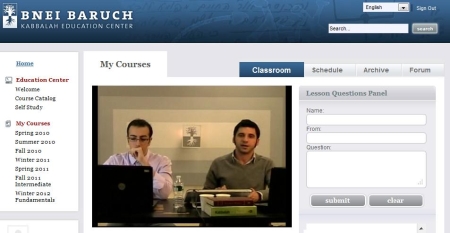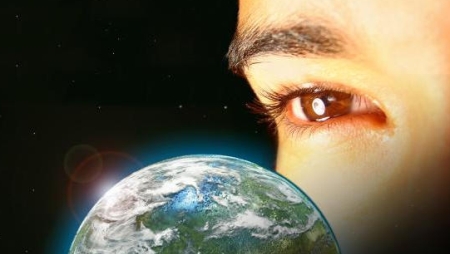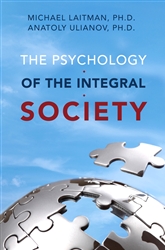
Image: The virtual classroom at the Bnei Baruch Kabbalah Education Center, where the second lesson took place
Tonight, the second lesson of the Free Kabbalah Course took place, which provided an introduction and context to learning The Zohar, the seminal book of Kabbalah.
One of the main points in the first two lessons has been understanding individual and collective human evolution through 4 stages of desire – inanimate, vegetative, animate and speaking – where we developed through food, sex, family (inanimate level of desire), money (vegetative level of desire), honor, control, knowledge (animate level of desire), and how today we have reached a desire for an unknown, unfelt connection that we cannot pinpoint, called “the desire for spirituality” (speaking level of desire). It is precisely this new desire for connection appearing today that on the one hand is causing us to make all kinds of global connections between us, while on the other, feel more and more distant and alone. It’s the era of more crisis on every level of life:
- Personal – increasing depression, suicide, drug abuse and loneliness
- Social – increasing social unrest, gaps between the rich and the poor, poverty and unemployment
- Global – increasing security threats and future outlooks of much more limited energy and resources
- Ecological – increasing ecological disasters: hurricanes, tornados, floods, earthquakes, tsunamis, wildfires, and increasing extinctions of species
In the lesson, the instructors elaborate on this development and what characterizes our era, setting the scene for the revelation of The Zohar and the wisdom of Kabbalah in our era, which come specifically to fulfill this new desire for spirituality awakening in humanity.
This desire is characterized by all the above crises, but more internally, the desire is expressed as fundamental questions about life, about the person, society and existence: “What is the meaning of life?” “Who am I?” “Why am I here?” “What is the reason for all the suffering in the world?” “Where did we come from?” “Where are we headed?” and so on.
All of the above crises are in order to awaken these questions in us, and the wisdom of Kabbalah was made for one purpose only: to provide the path that answers these questions in the form of a clear perception and sensation, one that doesn’t exist in our present outlook on reality.
Registration to the Free Kabbalah Course is still open until January 18, so it’s not too late to sign up, download the first lessons, and continue with the course. Sign Up Here »














